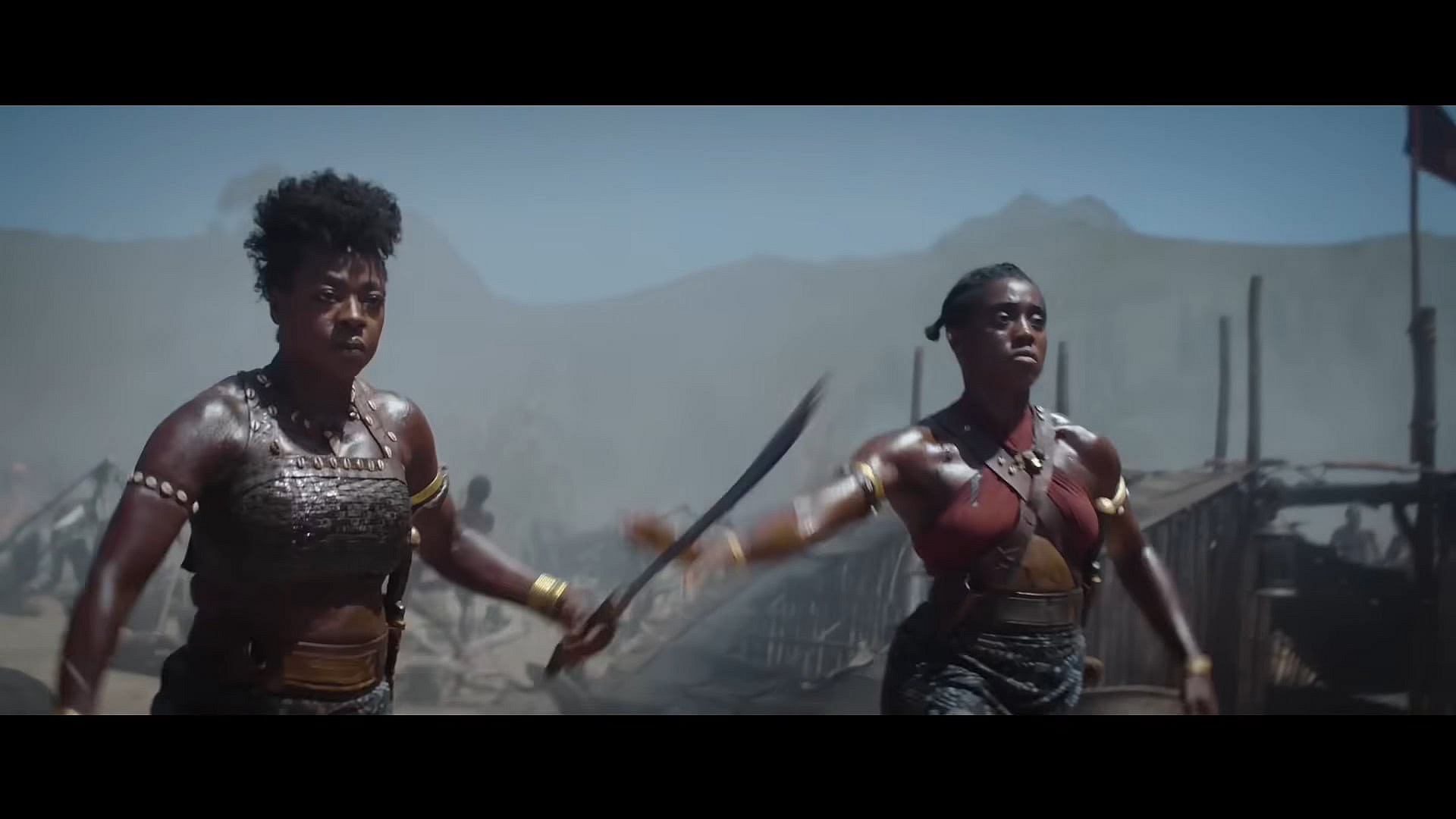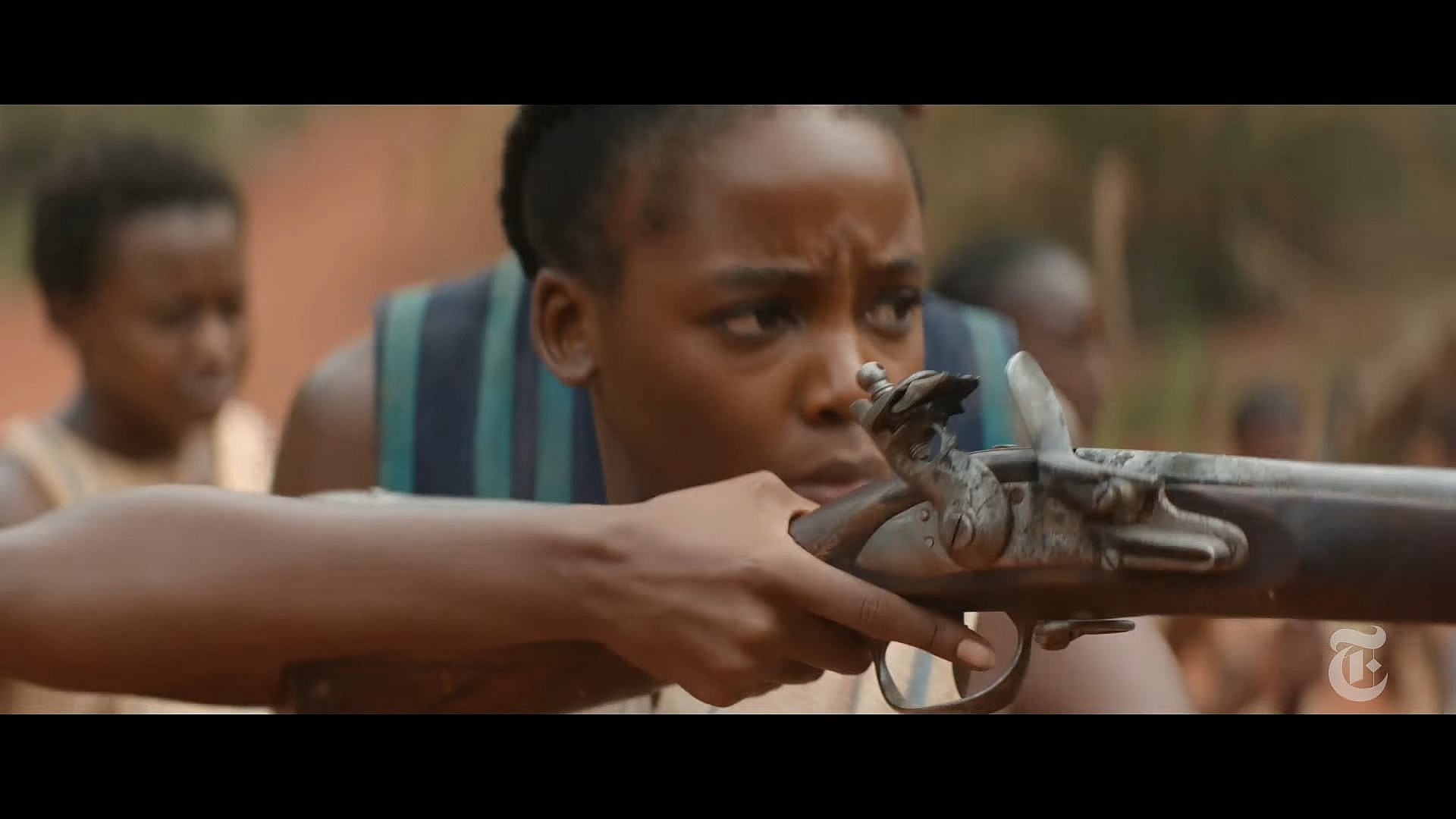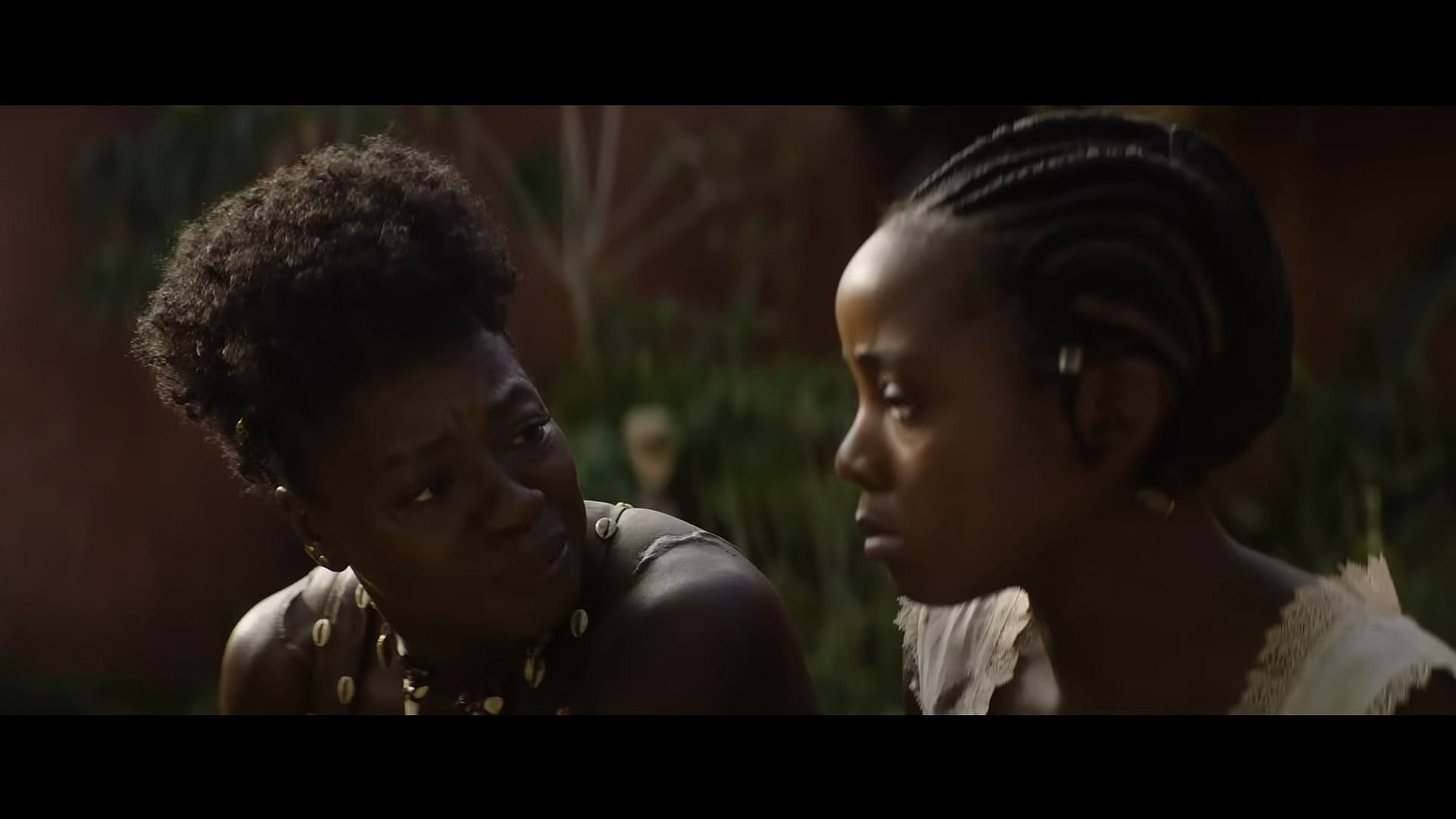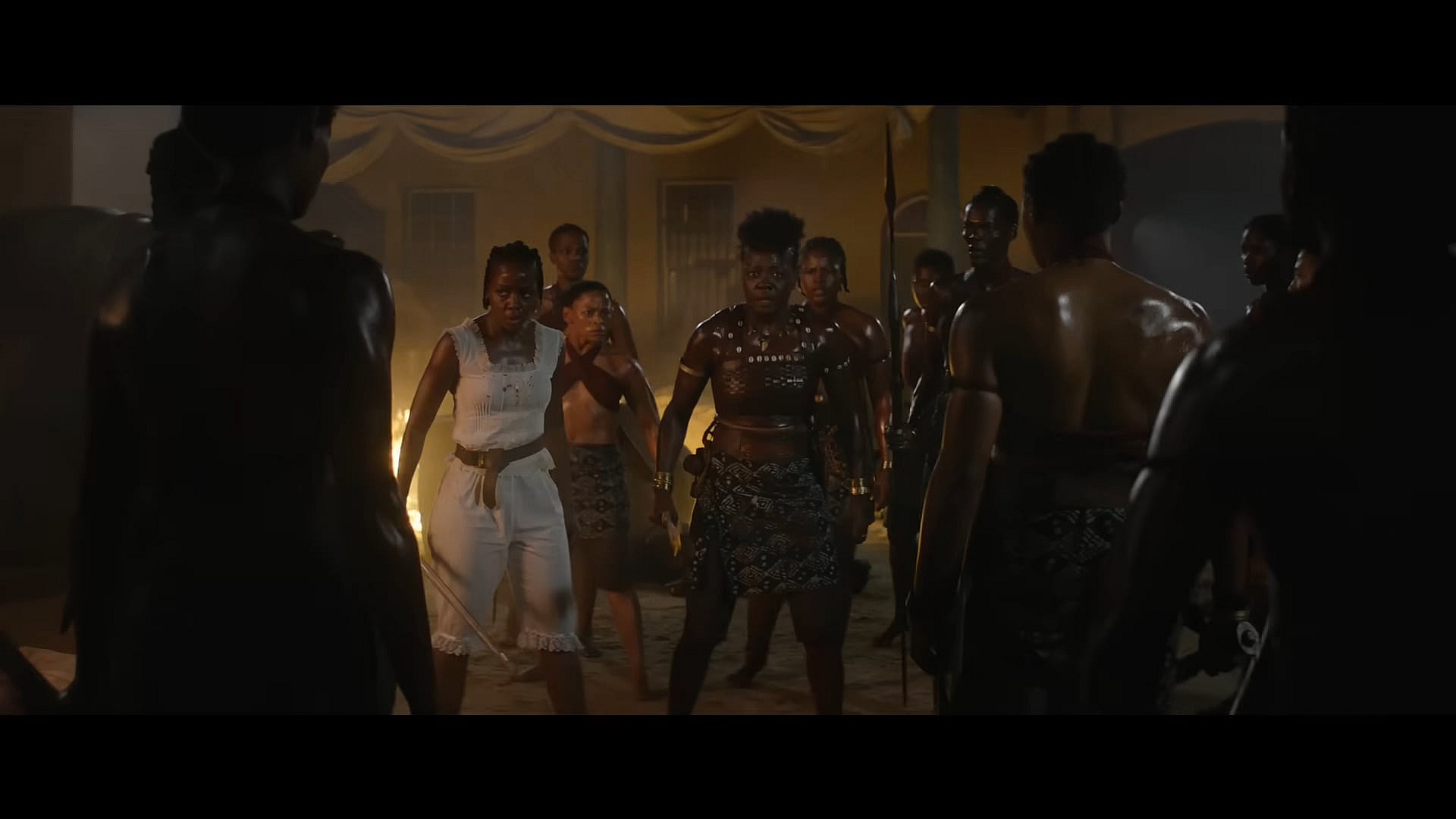‘The Woman King’ Review – A Fantasy That Runs From The Truth

What do you call a film which touts itself as a historical epic but omits key details in order to avoid telling the truth?
Most people would call it fantasy, but Hollywood calls it The Woman King.

The textbook definition of ‘revisionist history’, The Woman King, at face value, is a film that brings to life the intersectional feminist’s wet dream of seeing a group of strong Black women portrayed as heroes against European slave traders.

But in reality, this team up between director Gina Prince-Bythewood (The Old Guard) and screenwriter Dana Stevens (Fatherhood) should go down as one of the worst whitewashing of real-world history ever put to the silver screen.
Of course, that won’t stop The Woman King from being showered with awards next year, because as we all know, what a film represents is now far more important than its quality.

Set in the West African kingdom of Dahomey during the 1820s, “The Woman King follows an all-female group of warriors called the Agojie who protect the kingdom under the command of King Ghezo (John Boyeda), though he is a King in name only.
At the head of the Agojie is General Nanisca (Viola Davis), who trains the group’s members to fight against slave traders – European slave traders to be specific.

Let’s pause here.
This attempt by Prince-Bythewood and Stevens to turn the Agojie and Dahomey into anti-colonial heroes who fought against enslavement and oppression by White people is the film’s biggest problem.
Why? Because it’s about as historically accurate as a Hanna-Barbera cartoon.

In reality, the Dahomey were one of the most prominent slave trading states of their time.
According to History vs. Hollywood, the Dahomey not only “conquered neighboring African states and took their citizens as slaves, selling many in the Atlantic slave trade in exchange for items like rifles, tobacco, and alcohol,” but it was their engagement in this trade that “brought Dahomey most of its wealth.”

Regarding the Agojie themselves, the website notes that “The Agojie (women warriors) fought in slave raids along with the male fighters.”
“There are accounts of Dahomey warriors conducting slave raids on villages where they cut the heads off of the elderly and rip the bottom jaw bones off others,” History vs. Hollywood further details. “During the raids, they’d burn the villages to the ground. Those who they let live, including the children, were taken captive and sold as slaves.”
As best put the website themselves, “the movie strategically downplays this part of Dahomey’s history, so as to not complicate the story with the truth.”

That’s right: the same Atlantic slave trade that modern progressives hold over the head of any person with white skin as some sort of ‘original sin’ is the exact same one that the real-world inspirations for The Woman King’s protagonists killed to protect.
Once you realize the narrative that the film presents intentionally side-steps the fact that the Dahomey were some of the worst slavers in not only African, but world history, the film as a whole just falls apart.

Boyega’s King of Dahomey is emasculated by this woke fanfiction, as despite being an African king in the 1820s, his female soldiers are insubordinate to the point where it’s almost like they have themselves realized that they have ‘marginalized persons’ armor.
Not even the King’s own wife respects his authority. This is Feminist Storytelling 101 – a woman cannot be shown as being ‘equal’ to a man by her own merits, but only by tearing down men and making them look inferior.

(And while not exactly masculating, the idea that a ruler of such a region during this time period would allow LGBT people to serve in his court is equally as laughable.)
In an attempt to distract you from its blatant rewriting of history, The Woman King also gives you a story surrounding Nansica’s relationship with her daughter and the film’s unofficial protagonist, Nawi.

Young, brash, and defiant of authority – a common theme in the film – Nawi defies her family’s plans for her in order to become a soldier for the King.
Unsurprisingly filled with melodrama, Nawi and Nanisca’s side story is only outdone in this regard by a later plot in which the former takes on a biracial Brazilian trader as a love interest – an angle that ultimately goes nowhere because heterosexuality isn’t allowed in progressive storytelling.

RELATED: ‘She-Hulk: Attorney at Law’ Episode 5 Review – 20 Minutes Of Absolutely Nothing
Yet, in perhaps the most surefire sign that the film is a weak, woke blunder, Davis has fallen back on promoting the film by attempting to guilt audiences into giving it their attention by accusing anyone who doesn’t see it of “supporting the narrative that Black women cannot lead the box office globally“.
Maybe that narrative is true, or maybe the rest of the world just isn’t interested in giving money to Hollywood’s latest attempt to blame the 19th century for their own 21st century shortcomings.

For obvious reasons, the comparisons between this and Marvel’s Black Panther franchise are inevitable, especially with the upcoming female led sequel, Wakanda Forever, having taken some inspiration from the Agojie for its titular African nation’s Dora Milaje.
However, the most damning one of all is the fact that Disney’s portral of the fictional Wakanda is more rooted in reality than anything The Woman King presents on screen.

Ultimately, the takeaway message of The Woman King is not to let the truth get in the way of a good narrative.
